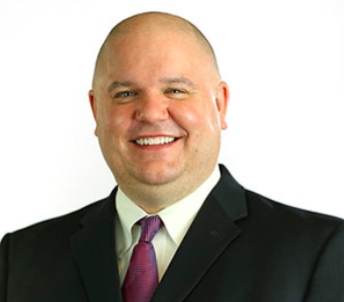WILL SPEAK TO NATION FROM OVAL OFFICE FOR FIRST TIME
President Donald Trump will deliver a primetime address about what he’s calling a “humanitarian and national security crisis on our southern border” tonight at 5 pm Alaska Time.
This will be Trump’s first time in this three years in office using Oval Office for an address to the nation.
President Trump broke the news on Twitter and said he’ll be heading for the border on Thursday. Republicans and Democrats in Congress are at loggerheads over the president’s border wall, as the partial shutdown of the government enters its 18th day today.
On Jan. 4, Trump sent a letter to all members of Congress concerning the need to secure the borders. He attached a presentation that Secretary of Homeland Security Kirstjen Nielsen was planning to deliver during a meeting with Congressional leadership in the White House Situation Room last week, but Democrats like House Speaker Nancy Pelosi refused to hear the presentation.
In his letter, the president writes “It is the sovereign right of every nation to establish an immigration program in its national interest—lawfully admitting those who have followed the rules, while denying entry to those who break the rules or fail to meet the requirements established in law.”
It’s a 9-minute read:
[Read the full text of the President’s letter, along with a gallery featuring the presentation slides.]
NBC, ABC, CBS, PBS and Fox have agreed to the White House’s request for air time. CNN, Fox News and MSNBC will all carry the address live, as well.
CSPAN will cover the speech here.
The Washington Post reported that the major networks of ABC, NBC, and CBS didn’t show President Barack Obama’s immigration speech in November 2014. That address was held during sweeps month, when the broadcast networks are competing for ratings.
House Speaker Nancy Pelosi and Senate Minority Leader Chuck Schumer immediately issued a joint statement demanding equal time.
“Now that the television networks have decided to air the President’s address, which if his past statements are any indication will be full of malice and misinformation, Democrats must immediately be given equal airtime,” their statement said.
GO FUND ME CAMPAIGN FOR WALL LIKELY TO TOP $20 MILLION
A Florida man who is a triple-amputee Iraq war veteran launched a GoFundMe.Com page last week to raise private money for the border wall. His goal? One billion dollars. Within three weeks, the page has reached the top five GoFundMe pages of all times, and is now only in second place after the “Times Up” fundraising effort on that site.
325,279 people have donated to Brian Kolfage’s “Trump Wall” campaign on the GoFundMe site, with donations coming in at about $1,000 an hour in small amounts, many under $100. The site has raised $19,563,000 as of this publishing.
There’s no specific method for transferring the funds to a government account dedicated to building the border, although there seem to be no constitutional barriers.
“Like a majority of those American citizens who voted to elect President Donald J Trump, we voted for him to Make America Great Again. President Trump’s main campaign promise was to BUILD THE WALL. And as he’s followed through on just about every promise so far, this wall project needs to be completed still,” Kolfage wrote.
“As a veteran who has given so much, 3 limbs, I feel deeply invested to this nation to ensure future generations have everything we have today. Too many Americans have been murdered by illegal aliens and too many illegals are taking advantage of the United States taxpayers with no means of ever contributing to our society.
“I have grandparents who immigrated to America legally, they did it the correct way and it’s time we uphold our laws, and get this wall BUILT! It’s up to Americans to help out and pitch in to get this project rolling.
“If the 63 million people who voted for Trump each pledge $80, we can build the wall. That equates to roughly 5Billion Dollars, even if we get half, that’s half the wall. We can do this,” he wrote.
What are your thoughts on building a border wall? Leave your comments below. (Note: All comments are reviewed and hateful content is not allowed on Must Read Alaska.-sd)








